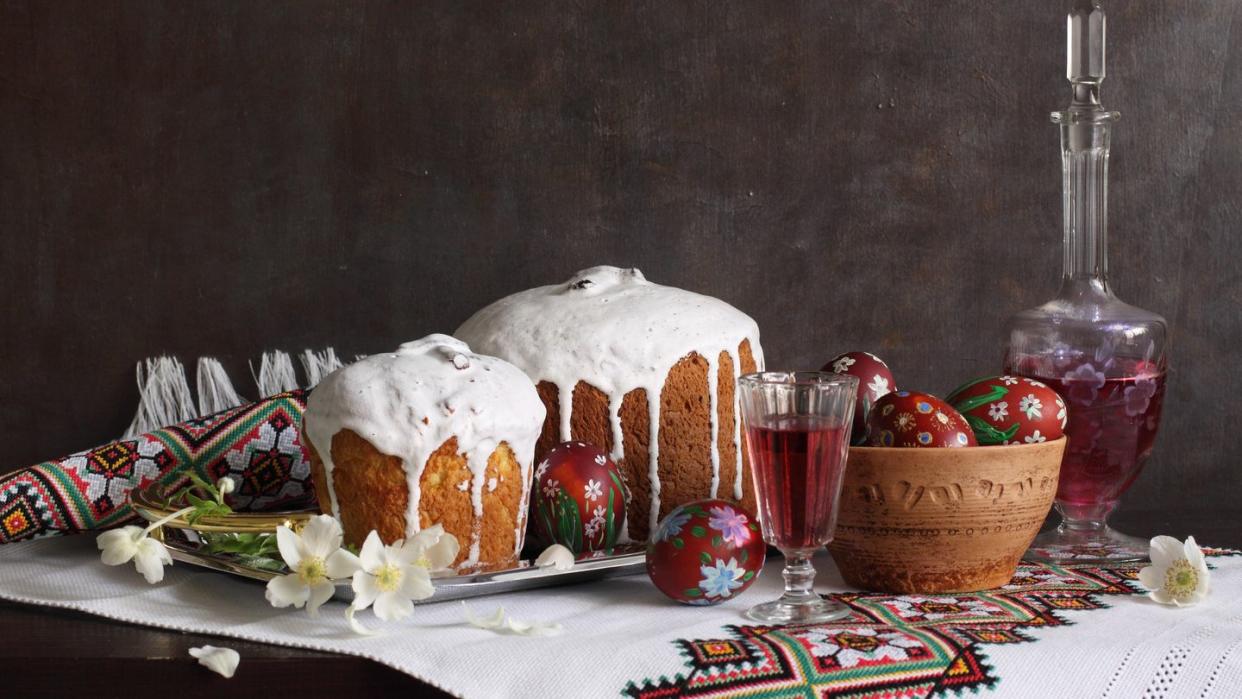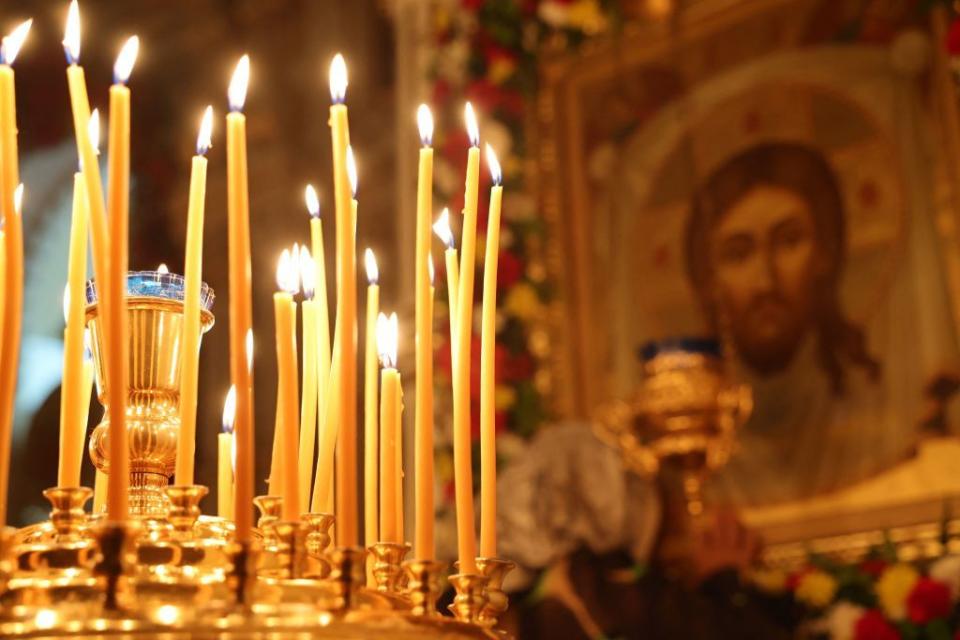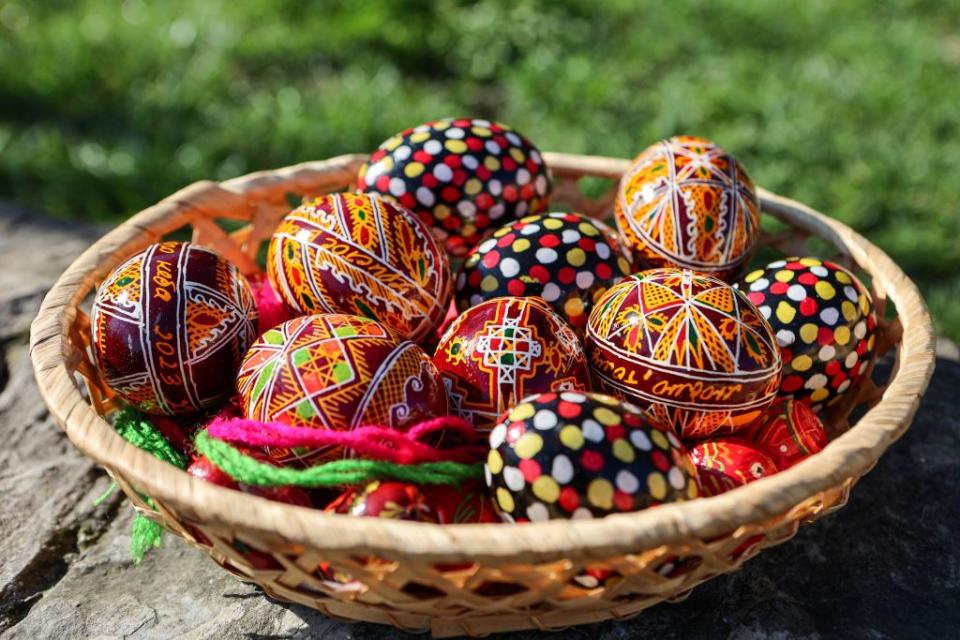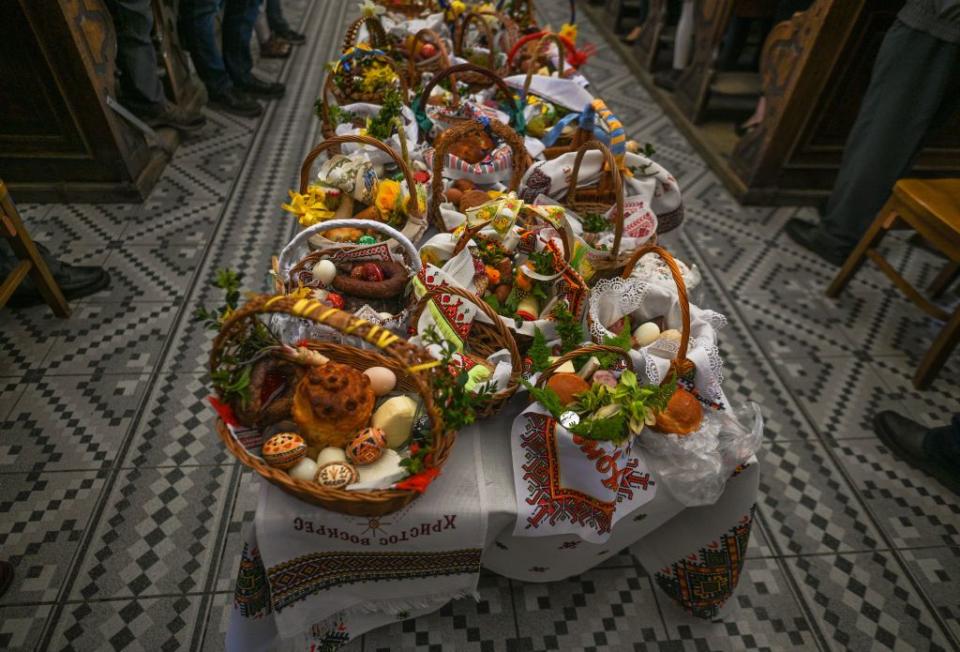What Is Orthodox Easter? Here's What You Need to Know

Once the first signs of spring begin to pop up (hello, tulips!), our thoughts instantly turn toward all the exciting occasions the season has to offer—especially Easter! After all, Easter traditions such as a big family brunch followed by an egg hunt are certainly things to look forward to.
But since the date of Easter changes every year, you might find yourself checking the calendar each time the weather warms up (it's okay, we do it, too 😂). And while doing this, you'll probably notice a second Easter on the calender. That means after you commemorate the miracle of Easter with a special church service (and plenty of hot cross buns and Easter gifts), you'll later see many other people observing Easter again. This is Orthodox Easter!
But what is Orthodox Easter and how is it different from Easter? We've done some research to answer all of your questions about the sacred holiday. Keep reading to learn everything you need to know, including the meaning of Orthodox Easter and the traditions surrounding it.

What is Orthodox Easter?
Orthodox Easter is honored by Orthodox Christians, and is officially observed in Bulgaria, Cyprus, Greece, Lebanon, Republic of Macedonia, Romania, Russia, and Ukraine. Here in the United States, many Orthodox Christians will observe Easter Sunday, though this often occurs at a later date than the Easter date observed by the majority of Western churches.
What is the meaning of Orthodox Easter?
Both Easter and Orthodox Easter actually hold the same significance! Though the dates and some specific traditions may differ, Orthodox Easter is a remembrance of the crucifixion and resurrection of Jesus Christ. It's the most sacred season of the Eastern Christian church's calendar, as it signifies the gift of new and eternal life after death to all who believe in Him.
According to History.com, Orthodox Easter is also the conclusion of "Great Lent," a 40-day period of self-examination and fasting that starts on Clean Monday and ends on Lazarus Saturday. Next is Palm Sunday, which comes one week before Easter and commemorates the entry of Jesus Christ into Jerusalem. This is followed by Holy Week, which ends on Easter Sunday, otherwise known as Pascha.

When is Orthodox Easter?
While Easter falls anywhere between March 22 and April 25, Orthodox Easter often occurs a week later, taking place between April 4 and May 8. Though in rare instances, the dates align, and Easter is celebrated simultaneously. The Orthodox Easter date is always nearer to the March equinox because it is observed on the first Sunday following the first full moon after Passover. This year, Orthodox Easter is on Sunday, May 5, 2024.
Why are Orthodox Easter and Easter on different days?
Simply put, the differing dates have to do with the different calendars followed by the separate religious affiliations. While most Western countries and Christian denominations refer to the Gregorian calendar, the date for Orthodox Easter comes from the old Julian calendar.
As History.com notes, The Julian calendar, based on the solar cycle, was established by Julius Caesar in 45 B.C. before later being replaced by the Gregorian calendar. Although much of the world now uses the Gregorian calendar, the custom has remained to use the Julian calendar to calculate the date of Orthodox Easter as it was used when the Orthodox Church was initially set up.
Remember us mentioning that Orthodox Easter always falls on the first Sunday following the first full moon after Passover? Well, that's because of the Julian calendar's ties to the Earth's revolutions around the sun. Additionally, Orthodox Easter always falls after the Jewish celebration of Passover because, according to the Easter story in the New Testament, the crucifixion and resurrection of Jesus took place after He celebrated Passover.

How is Orthodox Easter celebrated?
Similar to Easter, Orthodox Easter is commemorated by attending joyous church services, feasting with family, and of course, involves plenty of lovely white lilies. But there's also a few traditions that are unique to the holiday.
For one, Eastern Orthodox churches usually hold a Paschal Vigil on Holy Saturday, the day before Easter, which ends just before midnight. This is often followed by a candlelight procession, with Easter services and celebrations beginning at midnight. Then, there's the feasting! Family and friends will gather to eat traditional foods such as roasted lamb and Easter bread. Another tradition is the blessing of food baskets. These baskets are usually filled with bread, cheese, meat, eggs, butter, salt, and other traditional Paschal foods as the fasting period has ended and meat and dairy products can be eaten once again.
Eggs also play an important part of Orthodox Easter celebrations—though they differ slightly from country to country. In Greece, hard-boiled eggs are dyed a bright red. In Ukraine, Pysanky eggs are adorned with beautifully intricate designs using a wax-resist method. Romanian Easter eggs are hollowed-out and decorated in a variety of colors and patterns, with many in traditional colors of yellow, red, and black. And in Russia, Easter eggs are made of wood then painted with traditional designs and images.
No matter the specific traditions and dates that differ between both Orthodox Easter and Easter, one thing is for certain: He is risen!
You Might Also Like

